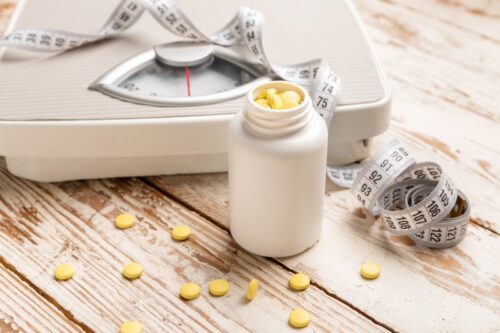Home » Sublingual Atropine Drops and Clozapine-Induced Drooling
Sublingual Atropine Drops and Clozapine-Induced Drooling
March 23, 2022
From The Carlat Hospital Psychiatry Report
Sébastien Hardy, PharmD, BCPS.
Dr. Hardy has disclosed no relevant financial or other interests in any commercial companies pertaining to this educational activity.
REVIEW OF: Mubaslat O and Lambert T, Psychopharmacology (Berl) 2020;237(10):2905–2915
STUDY TYPE: Randomized placebo-controlled trial
Excessive salivation or drooling is one of the more troublesome side effects of clozapine, occurring in up to 80% of patients. It is embarrassing for patients and is a factor in drug discontinuation. Aspiration pneumonia is a rare but serious complication.
Non-drug treatment is a first step, such as chewing sugar-free gum and elevating/covering pillows with a towel. Anticholinergics, such as glycopyrrolate, trihexyphenidyl, and benztropine, are usually helpful but significantly exacerbate clozapine’s powerful anticholinergic effects, placing patients at risk for constipation, impaction, and paralytic ileus. This has provoked interest in more localized treatments, such as the sublingual administration of atropine 1% ophthalmic solution. The clinical use of sublingual atropine has been guided by case reports and case series. Recently, Australian researchers investigated its efficacy for clozapine-induced drooling in a randomized controlled trial.
The researchers recruited inpatients (n = 23) from two major psychiatry centers in Sydney. Participants were randomized to receive two drops of sublingual atropine 1% (n = 11) or chloramphenicol 0.5% (n = 12); researchers used chloramphenicol as the placebo because it has a bitter taste similar to atropine. Medications were given at bedtime. The main outcome variable was saliva secretion, which was measured both at baseline and after medication by weighing dental cotton rolls and pads. Saliva secretion was reduced by 34% with sublingual atropine, while it was increased by 23% with placebo (p = 0.02). More atropine-treated participants had an improvement in pillow saliva wetness and sleep, though only 10 of the 21 participants were questioned about these issues.
CHPR’s Take: Sublingual atropine drops appear to be effective for clozapine-induced hypersalivation. A larger study would be helpful to better establish the safety and efficacy of this treatment compared to systemic drugs.
Hospital PsychiatrySTUDY TYPE: Randomized placebo-controlled trial
Excessive salivation or drooling is one of the more troublesome side effects of clozapine, occurring in up to 80% of patients. It is embarrassing for patients and is a factor in drug discontinuation. Aspiration pneumonia is a rare but serious complication.
Non-drug treatment is a first step, such as chewing sugar-free gum and elevating/covering pillows with a towel. Anticholinergics, such as glycopyrrolate, trihexyphenidyl, and benztropine, are usually helpful but significantly exacerbate clozapine’s powerful anticholinergic effects, placing patients at risk for constipation, impaction, and paralytic ileus. This has provoked interest in more localized treatments, such as the sublingual administration of atropine 1% ophthalmic solution. The clinical use of sublingual atropine has been guided by case reports and case series. Recently, Australian researchers investigated its efficacy for clozapine-induced drooling in a randomized controlled trial.
The researchers recruited inpatients (n = 23) from two major psychiatry centers in Sydney. Participants were randomized to receive two drops of sublingual atropine 1% (n = 11) or chloramphenicol 0.5% (n = 12); researchers used chloramphenicol as the placebo because it has a bitter taste similar to atropine. Medications were given at bedtime. The main outcome variable was saliva secretion, which was measured both at baseline and after medication by weighing dental cotton rolls and pads. Saliva secretion was reduced by 34% with sublingual atropine, while it was increased by 23% with placebo (p = 0.02). More atropine-treated participants had an improvement in pillow saliva wetness and sleep, though only 10 of the 21 participants were questioned about these issues.
CHPR’s Take: Sublingual atropine drops appear to be effective for clozapine-induced hypersalivation. A larger study would be helpful to better establish the safety and efficacy of this treatment compared to systemic drugs.
Issue Date: March 23, 2022
Table Of Contents
Recommended
Newsletters
Please see our Terms and Conditions, Privacy Policy, Subscription Agreement, Use of Cookies, and Hardware/Software Requirements to view our website.
© 2025 Carlat Publishing, LLC and Affiliates, All Rights Reserved.


_-The-Breakthrough-Antipsychotic-That-Could-Change-Everything.jpg?1729528747)



